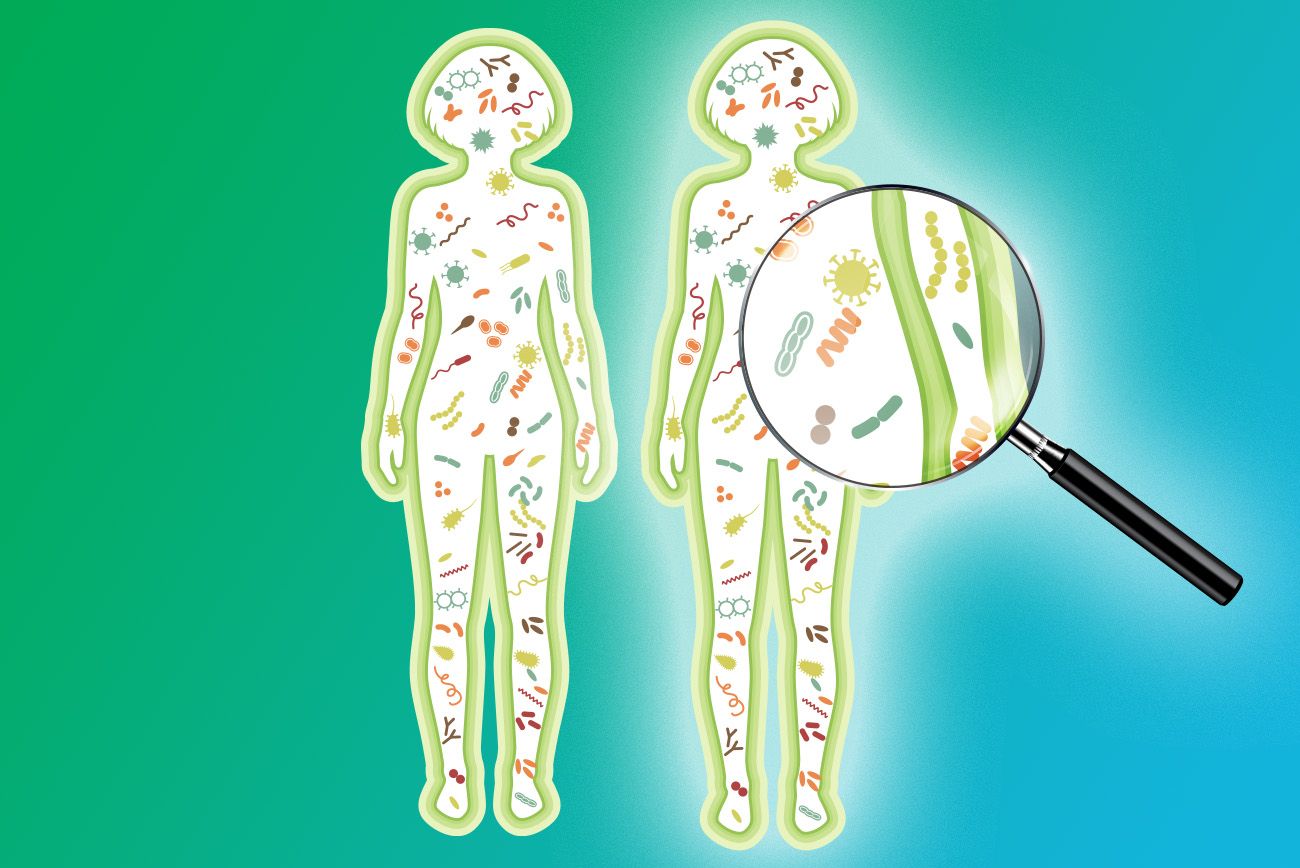Immunotherapy Clinical Trial Aims to Find Out
You may not realize it, but your body is home to a lot of microbes — way more than you might think. In healthy humans, “microbial cells outnumber human cells by about ten to one,” according to the Human Microbiome Project of the National Institutes of Health.
Most of them, called gut flora, live in your digestive system, especially in the colon. Others live in distinct communities in and on your body, in different types of environments — hot or cold, moist or dry.
If that makes you feel creepy, relax. While some microbes can make you sick — specific bacteria and viruses, for example — most are harmless, and many actually help keep you healthy. Together they make up your microbiome.
Your microbiome changes throughout your life. As a baby, you pick up some microbes from your mom. You get others from the food you eat, the type of place you live in, and even your pets. Your microbe populations can also be depleted: even the “good” ones can be wiped out by antibiotics and antibacterial soaps and gels. Because of all these influences, your microbiome is highly personalized.
Never miss another Cancer Talk blog!
Sign up to receive our monthly Cancer Talk e-newsletter.
Sign up!The Unseen Power of Your Microbiome
We’re just beginning to learn about the ways the microbiome can affect both mental and physical health. Recent studies show that it can even affect how you respond to cancer treatment.
Emese Zsiros, MD, PhD, FACOG, of Roswell Park’s Department of Gynecologic Oncology and Division of Translational Immuno-Oncology, wants to learn more in the hope of “improving our immune defenses against cancer.” She’s conducting a clinical trial for patients with epithelial ovarian cancer whose disease has returned after treatment.
The study is groundbreaking, for two reasons:
- It marks the first time the immunotherapy Keytruda® has been combined with two other drugs, Avastin® and low-dose oral Cytoxan®. Keytruda is FDA-approved for treating melanoma and non-small cell lung cancer, but it has rarely been used for ovarian cancer, and it has never been combined with other drugs. Separately, all three drugs have been shown to strengthen the immune system’s response to cancer. Zsiros hopes they will prove even more powerful together.
"We are one of the first centers in the United States that got approval to offer Keytruda to patients with recurrent ovarian cancer,” explains Zsiros. “At Roswell Park, we have a lot of experience conducting immunotherapy clinical trials with those patients."
Zsiros notes that patients with melanoma and lung cancer who took part in the clinical trials that led to FDA approval of Keytruda “had a very poor prognosis overall, but with this medication, those who responded had excellent and extended survival. This research study will look at how patients with ovarian cancer will respond to these treatments.” - The study will also be the first to collect and analyze microbiome samples from ovarian cancer patients in an effort to determine how microbiomes affect response to treatment. This information could help Zsiros and her team identify which patients would be most likely to benefit from the combination therapy used in the trial.
“There’s a whole new area of research suggesting that what’s going on in our gut, our gut flora, has a huge influence on overall health and happiness,” says Zsiros. “This study will extend that work in new directions. “But our main goal is to look for new approaches that may improve survival for our patients and minimize side effects of treatment.”
Questions? Learn more about this clinical trial.





